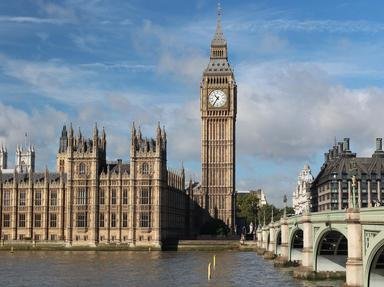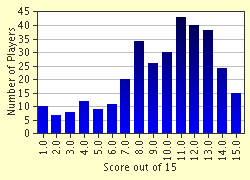Quiz Answer Key and Fun Facts
1. The first Prime Minister (1721-42) was Sir Robert ...?
2. Which Prime Minister's actions and policies provoked the American colonies to rebel?
3. How old was William Pitt the Younger when he became Prime Minister in 1783?
4. Originally, the term "Prime Minister" was purely a convenient nickname - usually for the "First Lord of the Treasury". When did the term gain official recognition?
5. Who is regarded as an outstanding reformer of the period 1820-50, first as Home Secretary and from 1841-46 as Prime Minister? Sir Robert ...?
6. He entered Parliament as a Tory (Conservative) but later became leader of the Liberals and headed four adminstrations in the 19th century. His name is William Ewart ...?
7. Who was Prime Minister when Britain declared war on Germany in 1914?
8. Who was the first Labour Prime Minister? Ramsay ____.
9. When did Winston Churchill first become Prime Minister?
10. Who headed the Labour Government of 1945-51?
11. Who, together with the French Government, occupied the Suez Canal area in 1956 and resigned shortly afterwards?
12. Which Prime Minister took Britain into the (then) European Economic Community, which has since evolved into the European Union?
13. Very few women have been British Prime Minister. Who was the first?
14. Who became Prime Minister in 1997 after a landslide electoral victory?
15. Which of these Prime Ministers did NOT study at the University of Oxford?
Source: Author
bloomsby
This quiz was reviewed by FunTrivia editor
Exit10 before going online.
Any errors found in FunTrivia content are routinely corrected through our feedback system.

